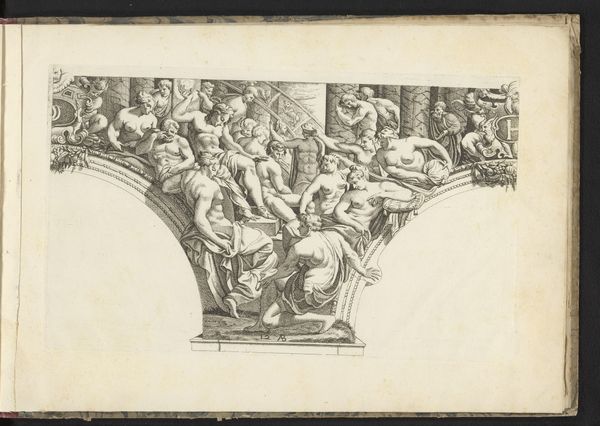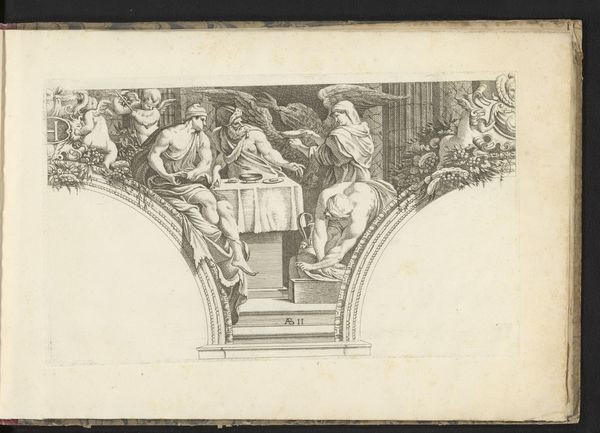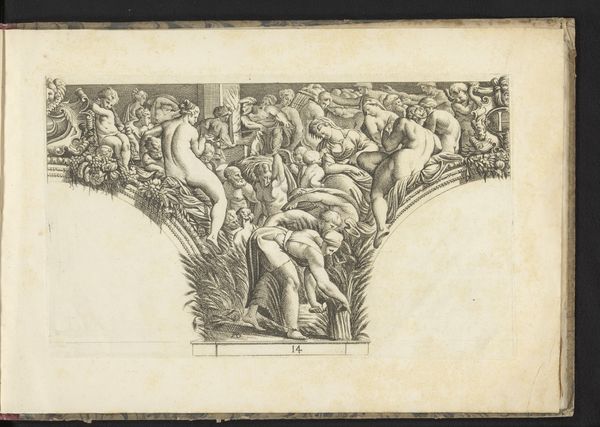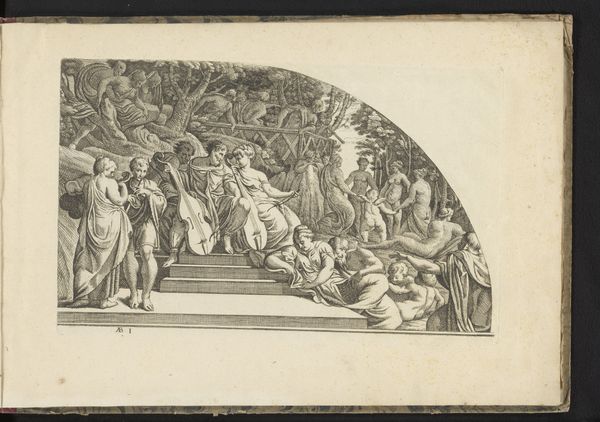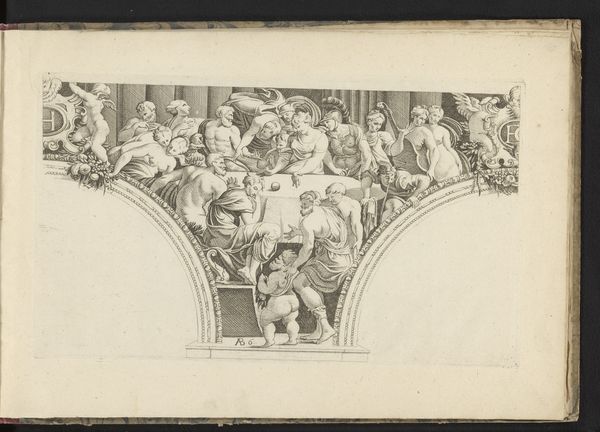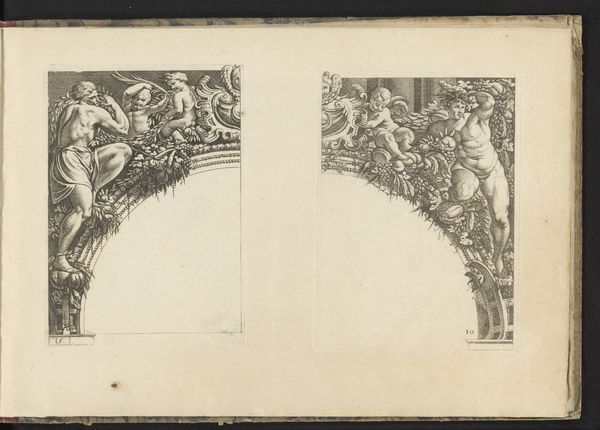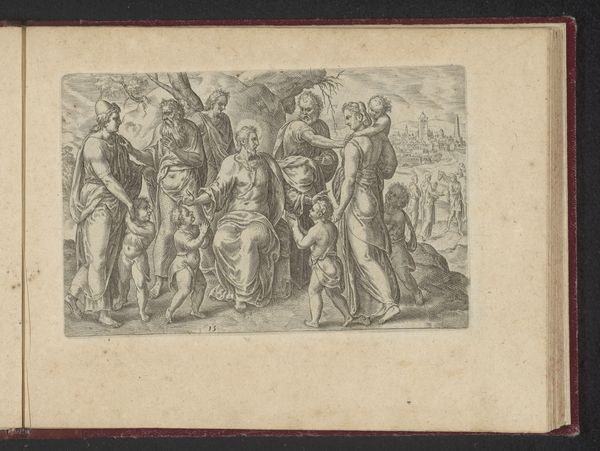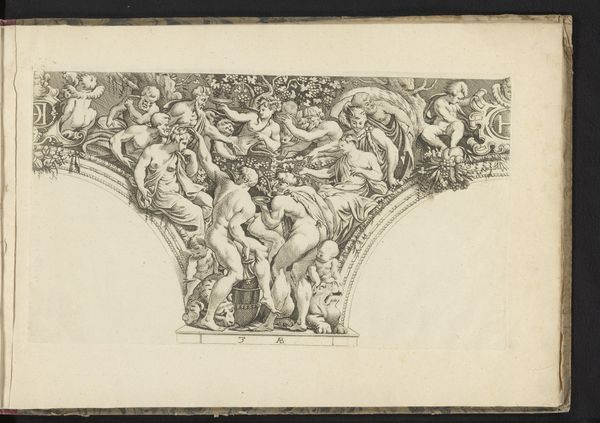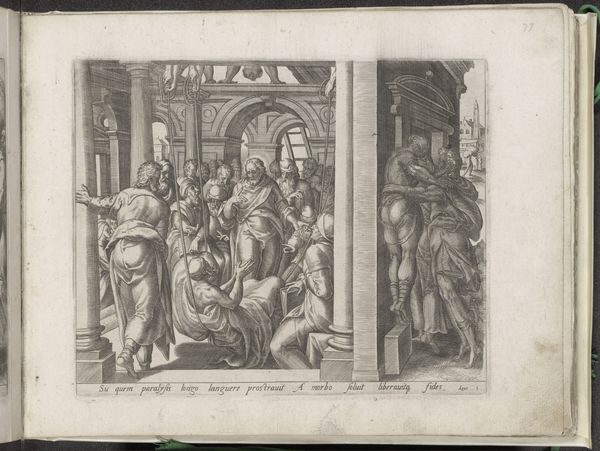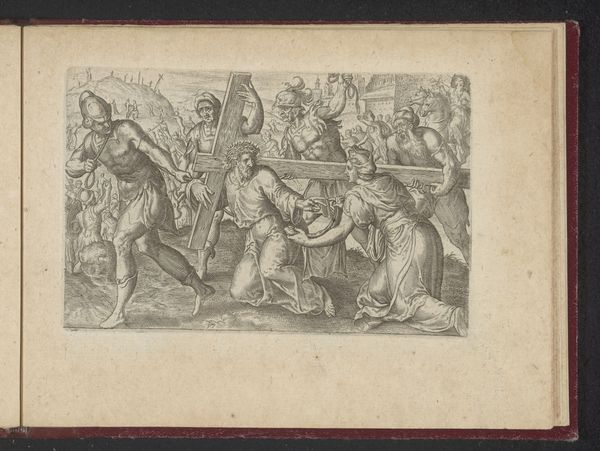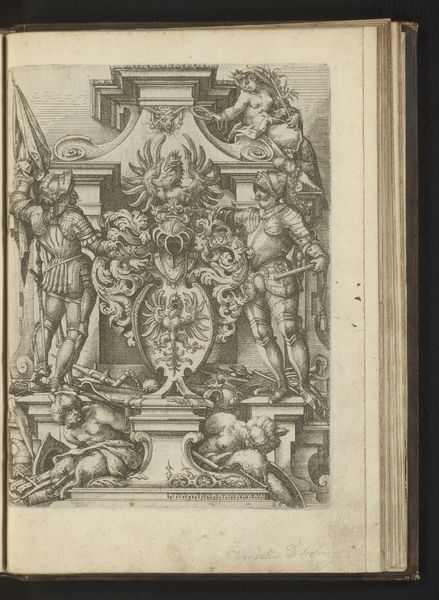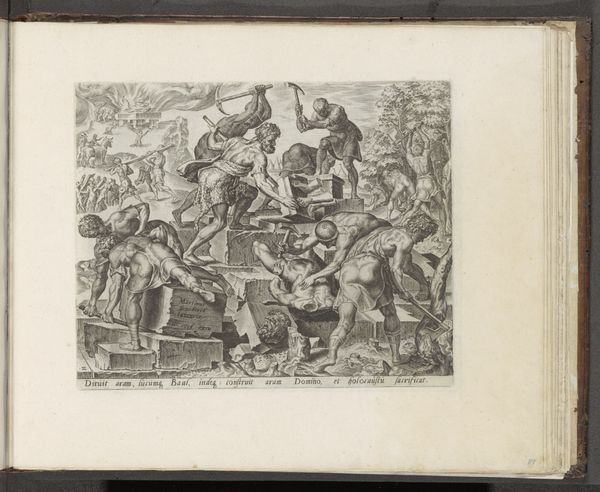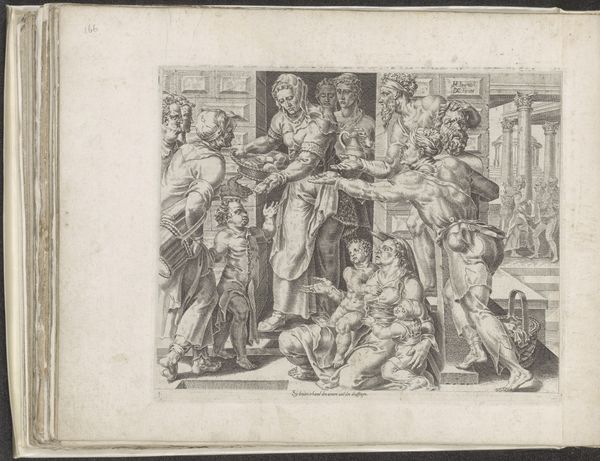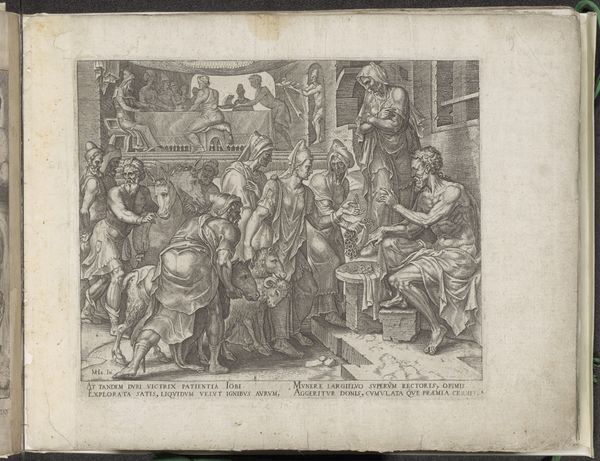
print, engraving
#
ink drawing
#
baroque
#
pen drawing
# print
#
pen illustration
#
pen sketch
#
figuration
#
history-painting
#
engraving
Dimensions: height 215 mm, width 351 mm
Copyright: Rijks Museum: Open Domain
Alexandre Bettou created this engraving, *Vulcanus en putti smeden pijlen op bevel van Venus*, sometime in the 17th century. It represents Vulcanus, the Roman god of fire, forging arrows with putti, or cherubic boys, at the command of Venus, the goddess of love. The image captures a classical ideal of beauty and power which was prevalent in art during the 17th century. Note how the characters, especially Venus, are idealized, possessing flawless features which reflect the standards of beauty of that time. In this light, gender roles are clearly defined, with Venus commanding and Vulcanus executing. Also note how the artist creates a contrast between the softness of Venus and the putti and the brawny muscularity of Vulcan, creating an almost sensual tension. The arrows being forged are not just weapons; they are instruments of desire. The historical context emphasizes the enduring fascination with classical mythology, yet the emotional narrative speaks to the timeless, and often fraught, dynamics of love, desire, and power.
Comments
No comments
Be the first to comment and join the conversation on the ultimate creative platform.
